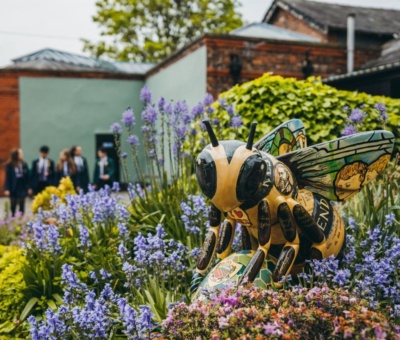How does Sport enhance the CHS Experience? – Mr Hegarty (CHS Co Director of Sport)
By Mr Giles Heagerty, CHS Co-Director of Sport
The pupil body here at CHS is an incredible, diverse group. It is one of the things that sets the school apart from others in the area, and further afield. That diversity spreads into almost every element of daily life, including in sport. There are those of you for whom sport is everything, those for whom it is the last thing on your mind and those for whom it is anywhere in between. This is not a “call to arms”, to encourage pupils to get involved with sport at CHS. Nor is it a lecture on why winning is so important. Rather it is an open acknowledgment of how sport, and more importantly being active, represents the values we hold so dear here at CHS:

Resilience
Swim 10 lengths. Run 400 metres. Lift that weight. Do that dance. Go out and do the lesson in the rain. We need to stop them scoring if we are going to win. The final whistle when you know you have lost.
All of these examples require us to demonstrate different levels of resilience, and the more we experience degrees of hardship, the more resilient we get. Doing hard things is only a good thing. It shows us we can compete, that we can get through hard times. Which can then roll out into other areas of our lives. I would go as far as to say that sport is truly the best thing for building resilience in people.
Integrity
Work for the full 30 seconds. Make sure you hit that line before you turn. Encouraging your peers when things get tough. Shaking hands with your opponent, even if they beat you. Respecting the referee’s decision. Playing by the rules. Picking up the cones at the end of the session.
All of these are examples of integrity. They are so simple, yet they are often the things that people take short cuts on. Showing integrity, no matter how small a gesture, is a trait that can be undervalued. There are so many opportunities to develop one’s integrity in sport. The more we do things, the more it becomes habit.
Contribution
Offering to swap teams. Being prepared to demonstrate a cartwheel. Going first in the dance lesson performance. Answering a question. Making a last-ditch tackle. Turning up for the match, on time….
There are so many examples of opportunities for pupils to contribute in sport. Again, so simple, yet so impactful on ourselves and the group we might be with. The more we contribute (the more we put in), the more we will get out. Whether that be deepening our understanding of training techniques to helping our team win a match, contributing fulfils us.
Endeavour
Doing a forward role when you couldn’t at the start of the lesson. Running the last leg of the relay as hard as you can. Pushing through to support your team mate after they have made a run with the ball. Helping your partner achieve a balance.
Do we understand what endeavour means? To try hard to do or achieve something. Every time you are in a sport lesson, or on a court or a pitch, there is an opportunity to demonstrate endeavour. How often do you do it?
Compassion
Compassion literally means “to suffer together”. Now, one should not “suffer” in the sense of pain in a sporting context. That said, when we work hard together, when we help each other through the swimming lesson, the fitness lesson, the last quarter of a game, when we help our opponent off the ground when we can see how upset they are at losing, that is compassion. When we see one of our peers struggling to achieve something and we join in to help them, that, is compassion.
Did you realise that sport provides you the opportunity to demonstrate every value that the school holds dear? Next time you are putting your kit on, think about which you are going to aim to show today.


